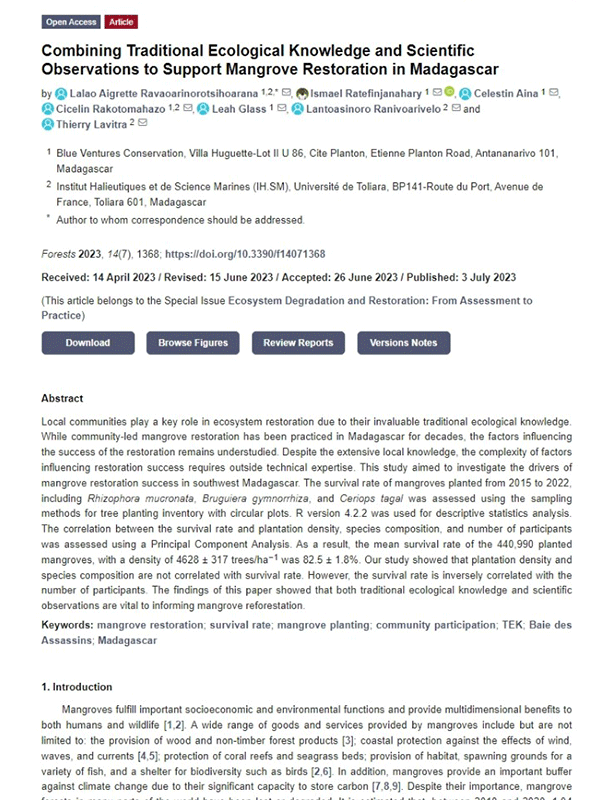Local communities play a key role in ecosystem restoration due to their invaluable traditional ecological knowledge. While community-led mangrove restoration has been practiced in Madagascar for decades, the factors influencing the success of the restoration remains understudied. Despite the extensive local knowledge, the complexity of factors influencing restoration success requires outside technical expertise. This study aimed to investigate the drivers of mangrove restoration success in southwest Madagascar. The survival rate of mangroves planted from 2015 to 2022, including Rhizophora mucronata, Bruguiera gymnorrhiza, and Ceriops tagal was assessed using the sampling methods for tree planting inventory with circular plots. R version 4.2.2 was used for descriptive statistics analysis. The correlation between the survival rate and plantation density, species composition, and number of participants was assessed using a Principal Component Analysis. As a result, the mean survival rate of the 440,990 planted mangroves, with a density of 4628 ± 317 trees/ha−1 was 82.5 ± 1.8%. Our study showed that plantation density and species composition are not correlated with survival rate. However, the survival rate is inversely correlated with the number of participants. The findings of this paper showed that both traditional ecological knowledge and scientific observations are vital to informing mangrove reforestation.












